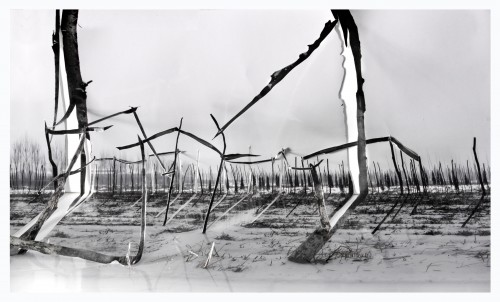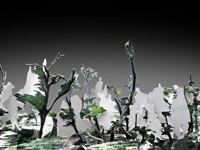
Irit Tamari solo exhibition – Hao jiu bu jian le
| In 2005 Irit Tamari arrived in Beijing from Tel-Aviv, armed with a camera. Photographing became an essential way of living for her; helping her with the process of comprehending all the experiences of her new life as a foreigner in a new country.
After four years, Tamari returned to Israel, consumed by thoughts of when she would return to China – her newly found home. For her, the photographs were merely the starting point in a trip down memory lane. Armed with a pair of scissors, she selected a limited number of her photographs, treating them as initial two-dimensional raw materials; deconstructing them, cutting fragments out of them, allowing her hands to build small nearly-dilapidated models of imaginary worlds, ones that only exist in another dimension. Creating a fictional reality she could escape to and hide within. Perhaps a reality that provided her with the feeling of being back in Beijing. Alongside the photographs of her models, Tamari exhibits in “Hao jiu bu jian le” a complementary in-situ installation which takes over the gallery’s walls. It comprises of fragments cut out of images of her exhibited photographs, but this time the closely-familiar fragments are combined with images of Jiali Gallery’s space itself taken by Daphné Mallet.Tamari’s artwork offers an alternate reading of the photographic technique as it applies a unique approach to stretching the boundaries of two-dimensionality enforced by the medium and shattering its accepted concepts. Her work reaches a different, enigmatic place that only exists beyond photography, beyond the clear image and beyond the understanding of things as they are. She undermines order and creates a visual world where, according to her: “the possibilities to destroy, rule, organize, repair, and ultimately to re-create” all exist. Tamari forces the photography not only into another dimension or space, but also into another time: the present, when Tamari is back in Beijing. Text by Adi Artsi Curators: Danna Mattas Applerot, Adi Artsi |
 |

